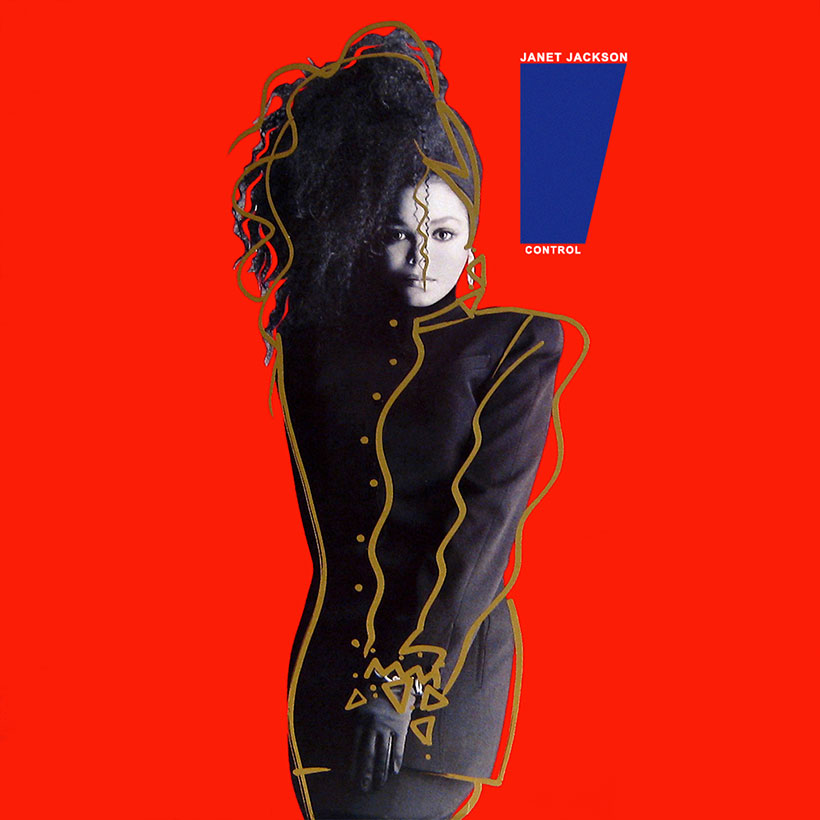Janet Jackson’s 1986 Pop classic still feels fresh and relevant over a quarter-century later.
‘Control” should actually be considered Janet Jackson’s debut album. Her preceding self-titled release was panned by critics, but also by Janet herself: “I didn’t want to do [the first record, Janet Jackson]. I wanted to go to college. But I did it for my father…”[1]Saunders, Michael (October 3, 1996). “The 3 Divas Janet Jackson turns her focus inward”. Boston Globe. p. D13 The same could be said of her No. 147 follow-up, the dreadfully titled Dream Street. The tension simmering under those projects then ignited with her brief marriage to James Debarge. That rebellion divided her family and consequently her management, with Janet finally removing her father as her manager soon thereafter all in public fashion.
Technically her third-album, ‘Control’ wasn’t the world’s introduction to the Jackson-name, but it was to her character. Her confidence at just 19 is well beyond her years, her vision just as clear. She was not riding on anyone’s coattails, and the pressure to appease her father and succeed like her brother never seems to phase her.
The show begins with a quite literally perfect album-opener in the title track. It’s not as radio-friendly as the other tracks on the album (which is perhaps why it’s the second worst-performing single on the project), but instead, it commits whole-heartedly to its role as ring-leader of the album. Jackson opens, addressing the listener and what they would have been thinking about in 1986: her public conflicts with her family – a particularly pertinent topic today as protegé Britney Spears wrestles with it herself. She acknowledges the public eye, and agrees to tell-all: “This is a story about control / My control.”
The atmosphere around “Control” arouses images of a live performance: the slow rumble of the bass as one waits for her to approach, her then-booming voice, and the sly acknowledgment of spectacle: “I hope you enjoy this as much as I do / Are we ready?” The breakdown introduces quintessential 80s pop, gated-drums, cowbell hits, and polite synth taps, all ornamenting her production. As she veers from section to section with Broadway-like flare, her conceptualization of the project as a “live album” peeks through the sound, and she almost pleads for the listener to choreograph.
The transition to the 2nd track is just as flawless, with the segue to the iconic smash single “Nasty.” By track two Jackson has made the blueprint for decades of successive pop stars: the aforementioned Spears, Christina Aguilera, and Miley Cyrus to name a few. Their metamorphoses from having a clean and judeo-Christian veneer to sexually-empowered women follow a direct track along the lines Janet Jackson laid here. And in doing so here, Jackson conserves the “bad girl” attitude of the album. It’s a sexy and rebellious fantasy, but the consequences of control and responsibility tread beneath the surface.
“What Has He Done For You Lately” features what today would surely be tracklisted as an interlude: she’s in dialogue here, with the iconic romantic-comedy scene of a maiden asking her girlfriends for relationship advice. “Lately,” like “Nasty”, was born from experiences with misogyny: “[These men] were emotionally abusive. Sexually threatening. Instead of running to [Control producers] Jimmy or Terry for protection, I took a stand. I backed them down. That’s how songs like ‘Nasty’ and ‘What Have You Done for Me Lately’ were born, out of a sense of self-defense.” This track symbolizes Jackson’s new choice of advisors, now turning to friends and other women instead of her father and a predominantly male production team. The theme of “control” here while initially accusatory maintains dominance. It’s the last successive knockout track as the meek “You Can Be Mine” is introduced, a tune too immature for the album with its minuscule chorus and proposal.
While she the regimented perfectionist finally shows some cracks, “The Pleasure Principle” picks the album back up as a solid halftime track that would feel comfortable as both a single and a deep cut. But the second half of the album lacks the gusto of the first.
“When I Think of You” is not nearly as sexy as the title suggests but with lyrics just as boring. At this point, it’s clear that Jackson excels when leaning into her maturity, which is beyond her years after a life in the spotlight. This is what makes the album so compelling, and songs like “Think Of You” and “Let’s Wait Awhile” with their teen-pop grove shatter the illusion of Jackson as a woman. “He Doesn’t Even Know That I’m Alive” plays into this dynamic as well: Jackson is too afraid to take control of a relationship, with a high school-esque mentality and vocal.
The grand finale simply can’t compete with the stellar opening either; “Funny How Time Flies (When You’re Having Fun)” is just as corny as its title would suggest. Her French intro is unconvincing and leaves the record hanging on an unfulfilling note.
Although Jackson doesn’t quite stick the landing, the experience is still one that begs to be relived, with a consistent conceptual theme and strong pop tunes throughout. While the Pop industry today has seen its fair share of teens expressing wisdom beyond their years – looking at you, Lorde – there hasn’t been a pop performer with her exhilarating combination of youth and maturity, and stage presence and vision since her arrival in the 80s. The performers she has directly inspired since – like Britney and Beyoncé – didn’t crash onto the scene with an album this tight until they were in their late 20s.
For this reason, the album isn’t so much great for breaking conventions but rather establishing them. With its combination of hard-hitting bangers and purposeful intent, it’s no wonder that Control put Janet Jackson on the map.

References
| ↑1 | Saunders, Michael (October 3, 1996). “The 3 Divas Janet Jackson turns her focus inward”. Boston Globe. p. D13 |
|---|




